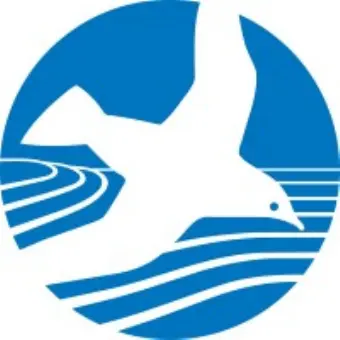About the Chesapeake Bay Foundation
Established in 1966, the Chesapeake Bay Foundation (CBF) is the largest regional nonprofit conservation organization dedicated to saving the Chesapeake Bay, its rivers and streams, and the wildlife that call it home through education, advocacy, litigation, and restoration. Since 2010, CBF has engaged in a focused effort to defend and implement the Chesapeake Clean Water Blueprint, a binding federal and state collaborative agreement aimed at reducing pollution to the science-based, legally-affirmed levels established by the U.S. Environmental Protection Agency (EPA). The Blueprint is expected to be fully implemented by 2025. If the states and the federal government achieve Blueprint goals, the Bay will finally—after decades of failed efforts—be removed from the Clean Water Act's impaired waters list. Successfully implementing the Blueprint depends on a well-informed, engaged, active, and diverse constituency of members, advocates, and volunteers who speak up and take action to save the Bay.
CBF has a staff of approximately 230 employees working in offices in Annapolis, Maryland; Richmond and Virginia Beach, Virginia; Harrisburg, Pennsylvania; and Washington, D.C. as well as 15 field education program locations. Our staff and volunteer corps work throughout the region educating students and adults, advocating for clean water policies, restoring waterways, and litigating when necessary.
CBF's headquarters office in Annapolis, Maryland is the Philip Merrill Environmental Center, the world's first U.S. Green Build Council's LEED platinum building. In 2014, CBF opened the Brock Environmental Center—one of the world's most energy efficient, environmentally smart buildings—in Virginia Beach, Virginia.
CBF has 200,000 members and supporters and an annual budget of approximately $30 million. For more information on CBF, please visit our About CBF page.
About the Hiring Department
Environmental Protection and Restoration (EPR)
CBF's Environmental Protection and Restoration department defends and restores the Chesapeake Bay by protecting the Bay's natural resources from pollution and other harmful activities by fighting for strong and effective laws and regulations; restoring the Bay's essential habitats and filtering mechanisms; and involving citizens in CBF's environmental efforts by recruiting, training, and incorporating them as effective partners and leaders.
Context of the Position
With the Maryland Senior Scientist, assists in development of Maryland office positions on environmental legislation, regulations, funding, and compliance with existing regulatory programs with a focus on issues related to water quality, climate mitigation and adaptation, and point and nonpoint source pollution. Reviews local, state, and federal regulations, policies, grant and cost share programs, as well as proposed projects for potential impacts upon surface and ground waters. Prepares comments, briefing papers, and reports that aid in the development of CBF positions on relevant issues. Assists in the review of proposed legislation and the delivery of written and oral testimony to the Maryland General Assembly. Interacts with media and concerned citizens. Represents CBF as a proxy to the Maryland Senior Scientist on various committees and at various state, regional, and national technical conferences
Essential Functions
1. Assist with development of CBF policies and positions through monitoring of local ordinances, state legislation, regulations, guidelines, policies, and funding related to point and nonpoint source pollution and climate adaptation and mitigation.
a) Analyze, critique, summarize, and provide written/oral comment on new or changing laws, regulations, policies, guidelines, and funding programs regarding their impact on the water quality and living resources of the Chesapeake Bay and Maryland rivers.
b) Evaluate environmental management options associated with development, industrial, agriculture, wastewater, and municipal projects.
c) Track Maryland’s progress towards implementing the Chesapeake Clean Water Blueprint.
d) Review programs with critical implications for water quality, including but not limited to: Watershed General Permit, MS4 Permits, Triennial Review, 303d reporting, agricultural permits, and similar permits.
e) Work with partners to develop innovative solutions to enhancing Chesapeake Bay restoration at the local and state levels.
f) Analyze and synthesize research to provide support for CBF positions and help develop CBF positions on issues of concern. Prepare reports or policy documents establishing CBF positions on specific water quality matters.
g) Critique the overall functioning of state environmental/water quality programs, including grant and cost share programs and advocate for improvement.
h) Serve as an effective advocate, including testifying at public hearings, serving on relevant committees, lobbying public officials on legislative proposals, and educating other organizations, citizen groups, and the public. This includes meeting with affected unicipal/industry/community leaders and other concerned individuals.
i) Assimilate scientific data that support CBF positions. Review scientific literature and synthesize for CBF staff.
2. Interact with concerned citizens and the media.
a) Participate in media opportunities, including interviews for TV, radio, and print publications in support of CBF policy priorities.
b) Prepare materials for and conduct presentations at workshops, seminars, hearings etc.
c) Respond to citizen inquiries related to water quality issues.
d) Participate in issue-oriented field trips for legislators, CBF members, decision makers, and the public.
Professional Experience and Qualifications
Bachelor’s degree in natural resource or environmental sciences such as marine science, biology, aquatic ecology, environmental science, or related field or a minimum two years’ experience in water quality issues, including urban stormwater management, agricultural runoff, nutrient management, municipal wastewater treatment, water quality standards, state/federal water quality reporting requirements, watershed management and total maximum daily loads. At least two years’ experience in advocacy on complex environmental issues. Familiarity with federal, state, and local laws, regulations, policies, and guidelines governing water quality protection, nonpoint and/or point source pollution and agricultural permitting necessary. Excellent public speaking and written communication skills, including interacting with the media, decision-makers, and the public.
Salary Range: $60,000 - $64,000
How to Apply
Using the link below, please submit a cover letter and resume no later than October 9, 2023.
Apply Now
CBF offers a 36-hour work week, a flexible telework policy, a comprehensive benefits package to include: 20 vacation days, 10 sick days, 2 floating holidays, health, vision, dental, life insurance, and a 403(b) retirement plan with matching contribution. Learn more about CBF Benefits.

